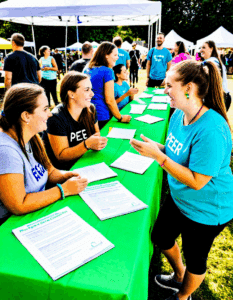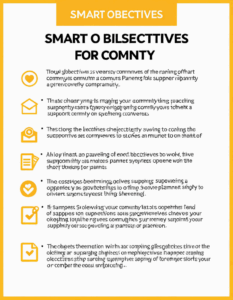
The Dawn: Shifting Perspectives on Addiction Recovery
Addiction is an experience that often feels insurmountable, leading to despair in families. However, the dawn of new understandings is upon us. We now realize that addiction isn’t just a personal flaw; research shows it’s influenced by many factors, like genetics and the environment. Studies are revealing the neurobiological roots of addiction, emphasizing how it intertwines with emotional health. This key insight promotes compassion over judgment, allowing families to see their loved ones through a lens of understanding rather than stigma.
Take the powerful example of Ruby Williams, a mother who felt the weight of addiction’s stigma crushing her family. After experiencing profound loss, she began sharing her son’s story. Her journey transformed her into a beacon of hope, advocating for recovery on national stages. Sharing not just her son’s battles, but the love and strength that remained amid pain, Ruby shows how the dawn can break even the heaviest clouds. Stories like hers illustrate how the dawn signifies not just an end to darkness, but a call to renewal, resilience, and hope for those struggling with addiction.
As we consider these evolving narratives, it’s essential to shift our perspective—addiction recovery is a journey filled with possibilities. The dawn isn’t just an abstract concept; it’s a reality waiting for families and individuals to embrace. By focusing on the stories of triumph, we can inspire change and promote a wider understanding of recovery pathways that help others find their own dawning moments.

The Top 7 Signs of ‘Very Bad Things’ in Recovery
Understanding potential pitfalls in recovery helps parents stay vigilant. Here are the top seven signs of ‘very bad things’ to watch out for:
Social relationships are vital during recovery. Studies published in the Journal of Substance Abuse Treatment indicate that individuals feeling isolated are more likely to relapse. Encouraging social connections and support can counteract feelings of loneliness, steering loved ones toward healthier paths.
Withdrawal sometimes lingers far longer than anticipated. Understanding how long withdrawal symptoms can last provides insight into potential challenges for those in recovery. It’s critical to recognize that even after detox, someone may face ongoing physiological hurdles that need professional support.
Common situations can unknowingly trigger cravings. Imagine walking into a bar while trying to stay sober—these environments can uproot the hard-earned progress someone has made. Conversations with therapists highlight the importance of identifying these triggers and developing coping strategies to manage them.
Addiction often walks hand in hand with mental health disorders. Statistics show that those with substance use disorder are twice as likely to experience depression or anxiety. It’s crucial for recovery programs to include mental health treatment, ensuring a holistic approach to healing.
Feeling too confident in one’s recovery can lead down a slippery slope. Accounts from those who experienced relapses due to complacency serve as valuable reminders. Those who stay humble and grasp the ongoing nature of recovery have far better chances of maintaining their progress.
Money woes can add tremendous stress during recovery. Financial instability really can cause setbacks, serving as a reminder of just how intertwined financial health is with emotional and physical wellbeing. Addressing these financial challenges head-on can pave the way for sustained sobriety.
Untreated trauma can act as a significant barrier to recovery. Individuals grappling with unresolved pain often find themselves struggling repeatedly. Case studies reveal how trauma-informed care, such as Eye Movement Desensitization and Reprocessing (EMDR), has yielded promising results in treating addiction and its root causes.

Daymark: Creating a Personal Dashboard for Recovery
Personal recovery doesn’t have to be a solo journey; crafting a daymark—a customized dashboard to track progress—can be transformative. Here’s how to create one:
Creating a dashboard covers all areas of recovery, offering a powerful barometer of personal growth. Monitoring milestones in recovery fosters hope and accountability, empowering individuals to continue forging ahead despite setbacks.

Somewhere Nowhere NYC: Finding Safe Spaces for Recovery
Change often occurs in safe spaces, and innovative environments like Somewhere Nowhere NYC are breaking the mold. Focusing on creating community-centered recovery, these hubs help combat the isolation too often felt by those in recovery.
In these safe havens, individuals can connect without judgment, share their experiences, and foster a sense of belonging. Such shared connections remind participants that they aren’t alone on this journey. As they navigate their paths to healing together, bonds form and new friendships blossom, sparking motivation for healing.
The diversity of available recovery spaces opens doors for innovative healing practices, promoting long-term sobriety in urban settings. Together, these communities are weaving rich tapestries of recovery, underlining the importance of finding meaning and family in shared experiences.
![[망아살] THE DAWN - 'Second Chance'](https://www.mothersagainstaddiction.org/wp-content/cache/flying-press/38e4d4ce6112061198b03e847ea36e81.jpg)
In the Rooms: The Healing Power of Connection
One of the incredible benefits of recovery groups stems from the magic of community. In the Rooms, an online recovery platform, provides members access to a plethora of support groups where the healing truly takes place.
Sharing personal journeys, attendees find solace in authenticity. Each story told not only provides comfort but ignites inspiration in others. Parents and recovering addicts alike express their pain and triumphs, forming emotional connections that bolster each individual’s resolve.
The power of these support networks illustrates that, while recovery is indeed a personal journey, it is enriched by collective experience. When we share our battles, we lessen the burdens and invite healing into the fold.
Versed Drug: The Role of Medication-Assisted Treatment
As the landscape of treatment for addiction continues to evolve, medication-assisted treatments, like the Versed drug, are emerging as promising tools in recovery. The science behind such developments offers exciting news for those grappling with cravings, providing smoother transitions for individuals seeking sobriety.
The role of medications in addiction treatment emphasizes the need for an integrative approach. Incorporating medications alongside behavioral therapies enriches recovery programs, giving individuals tools to navigate cravings they once thought were unmanageable.
By staying updated on such emerging trends, families can actively participate in their loved ones’ recovery journeys. Healthcare professionals are now more aware of the benefits, making demands for better treatment options rise to the forefront of the conversation.
Taking Care of the Babies: Supporting Families Affected by Addiction
Strengthening families impacted by addiction takes a village. Initiatives like the “Family Matters” program empower families with education, skills, and support as they navigate the challenges of addiction. This early intervention is critical in creating a foundation for long-term recovery.
Families are often left to grapple with their pain and grief alone. By educating families on healthy coping mechanisms, they can support their loved ones while fostering their own healing. Programs that focus on family dynamics emphasize healthy communication, making recovery a shared goal rather than a solitary battle.
Supporting families affected by addiction signifies a commitment to building futures filled with hope. As we prioritize education and support networks, we forge connections that help heal entire communities.
A New Direction After Pain
Emerging from addiction is a powerful act of transformation; it’s about creating a new path. As the dawn breaks, families impacted by addiction can reshape their narratives, reclaiming their lives. We stand on the cusp of a new era, one where compassion takes center stage, blending understanding with actionable strategies for recovery.
The latest research and inspiring stories paint a picture of resilience and hope. By fostering environments rooted in support, we can collectively redefine what recovery means, allowing families to thrive. Let’s seize the dawn by continuing to advocate, connect, and build supportive communities—because together, we can foster an atmosphere where every day is a new beginning, free from the shadows of addiction.
At Mothers Against Addiction, our mission aligns with these values, striving to uplift families while providing vital resources throughout this journey. Join us in championing a new perspective, where hope and healing reign supreme!
The Dawn: A New Day in Recovery
As we stand at the dawn of new beginnings, it’s fascinating to note how pivotal moments can change lives. Just like the sunrise brings light to a new day, many individuals have found hope amidst the struggles of addiction. Fun fact: Did you know that the famous actor young Morgan Freeman once faced his own set of challenges before becoming the esteemed figure we know today? Like many on the road to recovery, his journey highlights resilience and the power of transformation.
Transitioning into a new chapter often involves facing fears and finding creative outlets. For example, you might be surprised to learn how the unconventional styling of babydoll tops has made waves in the fashion industry, symbolizing a break from conventional norms. Just as these trendy garments allow individuals to express uniqueness, people recovering from addiction often find their own expressions of independence and freedom in hobbies, art, or community involvement.
In another interesting twist, the dawn might remind us of the shifts in public perception around health and well-being. With the rise of alternative treatments, the discourse around cannabidiol vs CBD has taken center stage, showing how knowledge empowers families in their journey to support loved ones. Furthermore, speaking of holistic approaches, if you’ve been curious about nicotine alternatives, understanding how to use Zyn could provide insights into healthy choices when stepping away from dependencies.
As we watch the first light break, it echoes the laughter and camaraderie seen in the Ghostbusters 2016 cast, reminding us that a supportive community can uplift those in recovery. And in our collective push towards understanding and healing, solutions for mental and physical health challenges, like treatment for COVID, play a key role in ensuring we all look towards the dawn of better days ahead. What a journey it is, as we navigate the paths toward healing and the journey towards brighter tomorrows!





























